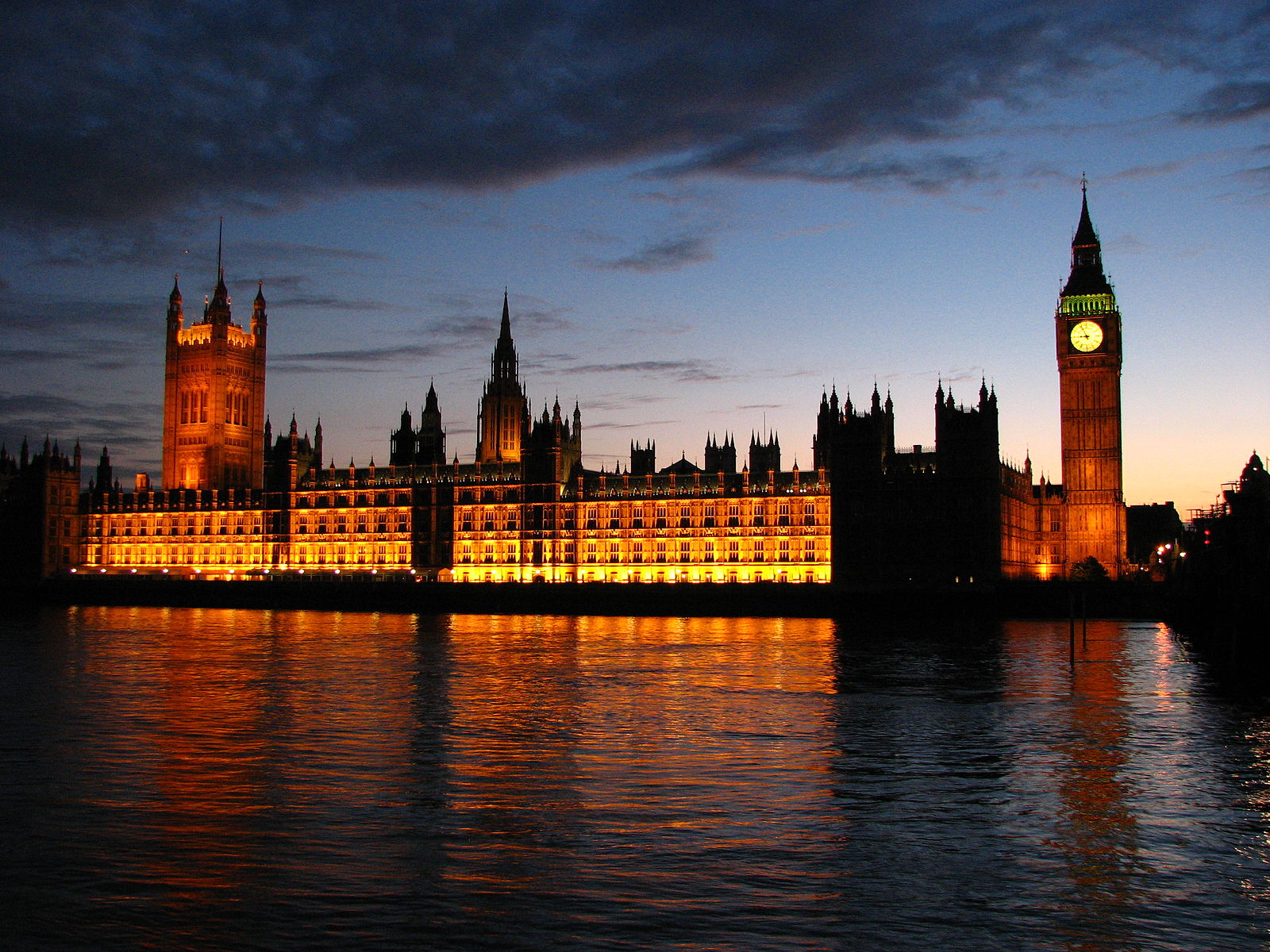In Greek mythology, a hunter, famed for his beauty, was so captivated by his reflection in a pool of water that he literally drowned in his own self-image. The hunter’s name was Narcissus, and from it derives narcissism, the excessive love for one’s self. The story of Narcissus reveals the deadly temptation of excessive self-love, and how oblivious we can be to its threat. Today, we face the same risk of downfall due to vanity as the American right has advanced a version of patriotism which embodies the harmful vices of narcissism.
This socially constructed idea of patriotism has become so entrenched in how we view love of country that questioning it can be perceived as questioning patriotism itself. However, a new social construct can provide us a different way to interpret the world, one focused on social advancement rather than superiority. As Americans, we tend to overly romanticize our history and prefer flattery over necessary honesty. Not only do we fail to acknowledge our dark history and our current shortcomings relative to peer nations, but to do so is considered unpatriotic and even hateful. Insecurities and intolerance are legitimized as proving loyalty to one’s country. Criticism of this status quo is welcomed with the open-minded response: “If you don’t like it, why don’t you get out?” To view criticisms as an affront to self-worth is a sign of insecurity, not something to be idealized or even normalized.
The qualities of narcissism include a belief in one’s own superiority, preoccupation with others’ perception of themselves, and a lack of empathy, all used as a defense mechanism to mask insecurities of self-worth.[1] This should never be confused with self-confidence, which is the recognition of one’s own abilities coupled with awareness of weaknesses, a desire for self-improvement, and reasonableness in the face of criticism.[2] The rhetoric of right-wing media, and especially the campaign of Donald Trump, help to expose these narcissistic attitudes embedded among modern American Conservatism. It reveals that Trump’s victory wasn’t based on exogenous forces which just happened to hijack the Republican Party. Rather, it was the logical extension of a conservative movement enabling a version of national pride based on a grandiose self-image, uniting white America under what is known as “Collective Narcissism.”[3] The attitude of national pride on the right is not just unproductive, but harmful and should be rejected under the label of narcissist patriotism.
American exceptionalism—the belief of American uniqueness and even superiority—remains prominent, particularly among the right where the claim of “We’re No. 1” is a standard assumption.[4] Yet despite self-flattering chants, the U.S. for years has lagged behind other developed nations among important indicators of well-being including poverty, health, and education. Our free market zeal notwithstanding, the U.S. ranks well below peer nations on the conservative Heritage Foundation’s Economic Freedom ranking, a measurement of ease-of-doing business and the business-friendliness of institutions.[5][6] Peer nations continue to surpass us in these rankings while others are catching up. The U.S. also ranks 21st in the Economist’s Democracy Index and even lower in the “civil liberties” category, despite being the self-proclaimed leader of freedom.[7] Research on social mobility across countries also reveals the myth of American exceptionalism in equal opportunity, which lags behind most developed nations.[8] The U.S. does lead the world in prison rates and obesity, but I’m not sure if these are the statistics to which proponents of exceptionalism are referring.[9][10]
These mediocre rankings are well-known, but narcissistic patriotism proudly ignores these facts, insisting on superiority while exchanging self-improvement for self-delusion. From once being a leader in these rankings, complacency and self-indulgence have held us back, demanding these flaws be ignored.
A narcissist’s claims of superiority come with a demand for special treatment. Narcissistic patriotism involves viewing terms of cooperation like international rules as applying to everyone but ourselves. As Trump addressed the United Nations: “We will never surrender our sovereignty,” when referring to rules of global governance, expressing a baseless demand for exemption outside of a belief in exceptionalism.[11] The nation of the Marshall Plan has become the nation of “We’ll do what we want.” But this seemingly tough attitude will also force us to be the last to recognize our mediocrity as we slowly and painfully come to the realization that we are not as special as we believe.
A message of American exceptionalism allows politicians and pundits to exploit this pride, harnessing our insecurity about how others may perceive us. Currently, the President’s rhetoric, rather than substantive policy on trade, immigration, and international diplomacy, is centered around our self-consciousness on the global stage. Claims like “They’re killing us on trade,” “They’re sending rapists,” and “They’re laughing at us” have been a mainstay of Trump rallies, indulging emotional arrogance to unite a base under a false flag of patriotism. Obsession over how the world perceives us isn’t a sign of true confidence, but one of insecurity among peer nations, unfitting for a so-called “global leader.”
The belief of superiority is often coupled with a rejection of “the other.” With this feeling of empowerment, senses of empathy and tolerance are dimmed, as one’s belief in superiority couples with the belief in other’s inferiority. One will not be surprised that negative attitudes towards people of different religions, races, and gender who fail to fit into a conception of “Americans” are prevalent among the narcissistic patriotic right, legitimizing fear and hatred of these groups.[12] Trump has even justified his actions of banning refugees from Muslim nations as not sharing our values.[13]
And this sense of “us versus them” goes beyond race, nationality, and gender identity, extending to those of differing opinions, who are also labeled an American threat. The right creates arbitrary rules of behaviors and opinions used to determined who truly loves America, rightly dubbed “patriotic correctness” by some.[14] These rules can be far-reaching, such as adherence to ideas like capitalism, Christianity, and American exceptionalism, or as trivial as standing for the national anthem. Trump’s, along with the right’s, reaction to the protest of NFL players is a testament to this. The right uses patriotism to redefine what it means to be American, to the exclusion of others regardless of their true love of this country. The right claims a monopoly over love of the U.S. while repeatedly accusing the left of a lack thereof.
These characteristics of narcissism, although they may appear to manifest from an sincere belief in one’s exceptionalism, are often a defensive mechanism to guard against self-doubt. The Republican base, particularly Trump’s base, consists largely of middle-income whites in homogenous areas dominated by feelings of lost status.[15] Trump was able to appeal to these insecurities by reinforcing the dominance of the white working class, and by expressing nostalgia for their time in power: “Make America Great Again.”
This group is facing both a relative and absolute decline, the sources of anxiety which help to explain the insecurity underlying narcissistic patriotism. As concluded by a study on Donald Trump’s rhetorical appeal, “Trump was able to appeal to white working-class Americans’ quest for recognition in the context of their downward mobility.”[16] As America is on a path to becoming more diverse, with non-hispanic whites predicted to lose their majority status within the next three decades, white Americans have responded with increasingly conservative ideology.[17]
Research has shown that even just the belief that the U.S. is becoming more diverse, as reflected by overestimating the foreign born population and reinforced by hearing Spanish conversation, has been shown to make white Americans more supportive of Trump’s agenda.[18][19][20] This is exemplified in areas where Donald Trump had the biggest gains over 2012 Republican candidate Mitt Romney, which were areas that experienced the largest relative growth in the Latinx population. This insecurity is exemplified by Fox News’s Laura Ingraham’s segment in which she states that due to demographic changes, “The America that we know and love doesn’t exist anymore.”[21]
This perceived loss of status has been coupled with absolute loss in well-being. Economists Anne Case and Angus Deaton have documented the “Death of Despair” among middle-aged white Americans, particularly those without a high-school education, leading to a staggering decline in life expectancy.[22] As of this century, this group has been facing rising mortality rates, particularly from drug use and suicide, a phenomenon currently unique to white Americans. Social researcher Charles Murray documents the disparaging decline that has been taking place among the communities of middle-and-low-income white Americans as well, including a decay of family structure, employment, and social engagement over the past five decades.[23]
The evidence of collective narcissism is here: A self-promotion of a conception of white America being used to cope with a decline in the relative status and absolute well-being of white America. This sense of powerlessness that has made Americans vulnerable for exploitation is founded on a narcissistic conception of Americanism.
The attitude of the right represents a deep insecurity which we can no longer allow to damage our nation. There is only one way to engage with a narcissist: Don’t. While we may be able to remove the cloak of rationality which conservative rhetoric wears and expose its true egotistical roots, reason will not be able to overcome unreasonable passions. We must refrain from sparking reaction and instead learn to cope with the reality that narcissistic patriotism has dominated the idea of national pride among the right. But this certainly doesn’t mean that we should accept this idea of patriotism.
While we should not engage, I also refuse to allow our beliefs about American patriotism to become subjected to collective narcissism. The appeal to national self-identity throughout history has been used as a tool for both violence and hatred, as well as advancement of social justice; it is our duty to use patriotism for the latter. To do this, we must reshape our beliefs.
It must be recognized that we do not view the world objectively, but through socially constructed paradigms shaped by institutions, social behavior, and our own collective biases.[24] Currently, the idea of patriotism is based on the idea of American superiority, which I argue is not only flawed but also dangerous. But it does not have to be this way. As stated by economist Joseph Stiglitz: “Beliefs do change behavior, and with changes in beliefs, policies and behaviors [change] also.”[25] The importance of beliefs in shaping outcomes presents the importance of replacing our socially dysfunctional view of patriotism, founded by zealots and special interests, with a socially constructive one, founded on public reason. How we view national pride, a view shaped and monopolized by the right, is fundamentally flawed and harmful to the nation it supposedly loves. It is up to reformers to reshape this view for the better, to create a new patriotic paradigm based on self-confidence rather than unbridled self-love, under some variant of the banner “civic nationalism.”[26]
Progressives have rightly been turned off by narcissistic patriotism, which they wrongly associate with patriotism in general. Many on the left, particularly college students, question arbitrary national borders and may consider themselves more as global citizens than national citizens, sympathetic to Voltaire’s claim that being a good patriot requires being an enemy of mankind.[27][28] But this should not be how patriotism is perceived. The nation-state has served as an ever valuable tool of social development and economic justice, however arbitrary our borders may be.[29] And to advance one’s conception of a fair society requires patriotism.
We as a nation must seek to define American patriotism, adopting a message of love for country not defined by obsessing over image and feeling threatened by criticism. A self-confident definition, where we recognize both our strengths and weaknesses, and are equipped with a willingness to self-reflect and listen to others is necessary. Supporting one’s county can be reflected by seeking to better our nation’s institutions, or at least not accusing those who do of hating it.[30] Rather than focus on being superior to others, we should focus on superiority over our former selves. Furthermore, rather than embodying ideas of Americanism in institutions with destructive elements, like our police and military, we can embody them in productive institutions like our schools and social services.
America has the potential to embody its self-proclaimed principles of freedom, justice, and opportunity through a progressive agenda of inclusive growth, one that only the left has shown a willingness to support. However, it must first recognize a true idea of patriotism, one that places the well-being of its citizens over self-flattering claims of prestige. A new generation of liberals should expose the right’s perversion of patriotism and seek to replace it with one of positivity and social betterment.
When I was first being exposed to political ideologies, I was confused why the figures who were touting love of country were also the ones who actively disregarded the well-being of their fellow citizens, placing their own interests over that of a better nation. Today, I am no longer confused, as these conservative figures have made it clear that they don’t deserve to describe themselves as patriots. While the right seeks to exploit the insecurity of its base, liberals can attract this base through a message of hope and nation building. A new meaning of patriotism is exactly what this nation needs to truly advance liberty and justice for all.
SOURCES:
[1]Emmons, Robert. A. “Narcissism: Theory and measurement.” Journal of Personality and Social Psychology. 52(1), 1987. 11-17.
[2]Weisinger, Hendrie. “The Essence of Confidence.” Psychology Today. September 1, 2015. Accessed November 02, 2018. https://www.psychologytoday.com/us/blog/thicken-your-skin/201509/the-essence-confidence.
[3]Zavala, Agnieszka Golec De, Aleksandra Cichocka, Roy Eidelson, and Nuwan Jayawickreme. “Collective Narcissism and Its Social Consequences.” Journal of Personality and Social Psychology 97, no. 6 (December 2009): 1074-096. doi:10.1037/a0016904.
[4]Kristof, Nicholas. “We’re Not No. 1! We’re Not No. 1!” The New York Times. April 03, 2014. Accessed November 02, 2018. https://www.nytimes.com/2014/04/03/opinion/were-not-no-1-were-not-no-1.html.
[5]Merelli, Annalisa. “The US Has a Lot of Money, but It Does Not Look like a Developed Country.” Quartz. March 21, 2017. Accessed November 02, 2018. https://qz.com/879092/the-us-doesnt-look-like-a-developed-country/.
[6]”2018 Index of Economic Freedom.” Heritage Foundation. Accessed November 02, 2018. https://www.heritage.org/index/ranking.
[7]The Economist Intelligence Unit. Democracy Index 2017: Free Speech under Attack. Report. 2018. https://pages.eiu.com/rs/753-RIQ-438/images/Democracy_Index_2017.pdf.
[8]Reforms, E. P. A Family affair: Intergenerational social mobility across
OECD countries. In P. C. Padoan (Ed.), Economic Policy Reforms 2010:
Going for Growth. OECD – Organisation for Economic Cooperation
and Development. 2010. Accessed November 02, 2018.
[9]Lee, Michelle Ye Hee. “Yes, U.S. Locks People up at a Higher Rate than Any Other Country.” The Washington Post. July 07, 2015. Accessed November 02, 2018. https://www.washingtonpost.com/news/fact-checker/wp/2015/07/07/yes-u-s-locks-people-up-at-a-higher-rate-than-any-other-country/?utm_term=.9dfd12f7c5a3.
[10]Kollmeyer, Barbara. “The U.S. Is the Most Obese Nation in the World, Just Ahead of Mexico.” MarketWatch. May 29, 2017. Accessed November 02, 2018. https://www.marketwatch.com/story/the-us-is-the-most-obese-nation-in-the-world-just-ahead-of-mexico-2017-05-19.
[11]Shamon, Ramsen. “Trump Officials Tout Sovereignty as Trump’s Talking Point at U.N.” Politico. September 24, 2018. Accessed November 02, 2018. https://www.politico.com/story/2018/09/24/trump-un-sovereignty-pompeo-837725.
[12]Williams, Aaron. “Hate Crimes Rose the Day after Trump Was Elected, FBI Data Show.” The Washington Post. March 23, 2018. Accessed November 02, 2018. https://www.washingtonpost.com/news/post-nation/wp/2018/03/23/hate-crimes-rose-the-day-after-trump-was-elected-fbi-data-show/?utm_term=.b356ab90f5f7.
[13]Hauslohner, Abigail, and Andrew Ba Tran. “How Trump Is Changing the Face of Legal Immigration.” The Washington Post. July 02, 2018. Accessed November 02, 2018. https://www.washingtonpost.com/national/how-trump-is-changing-the-face-of-legal-immigration/2018/07/02/477c78b2-65da-11e8-99d2-0d678ec08c2f_story.html?utm_term=.57977a1b12b9.
[14]Nowrasteh, Alex. “The Right Has Its Own Version of Political Correctness. It’s Just as Stifling.” The Washington Post. December 07, 2016. Accessed November 02, 2018. https://www.washingtonpost.com/posteverything/wp/2016/12/07/the-right-has-its-own-version-of-political-correctness-its-just-as-stifling/?noredirect=on&utm_term=.4c043887f3b7.
[15]Rothwell, Jonathan T. and Diego-Rosell, Pablo. “Explaining Nationalist Political Views: The Case of Donald Trump”. Social Science Research Network. November 2, 2016. Available at SSRN: https://ssrn.com/abstract=2822059. Accessed November 02, 2018.
[16]Lamont, Michele, Bo Yun Park and Elena Ayala-Hurtado. “Trump’s Electoral Speeches and His Appeal to the American White Working Class.” British Journal of Sociology. 68(S1). (November 2017): S153–80. Accessed November 2, 2018. doi: 10.1111/1468-4446.12315
[17]Craig, Maureen A., and Jennifer A. Richeson. “More Diverse Yet Less Tolerant? How the Increasingly Diverse Racial Landscape Affects White Americans’ Racial Attitudes.” Personality and Social Psychology Bulletin 40, no. 6 (2014): 750-61. Accessed November 2, 2018. doi:10.1177/0146167214524993.
[18]Klein, Ezra. “White Threat in a Browning America.” Vox. July 30, 2018. Accessed November 02, 2018. https://www.vox.com/policy-and-politics/2018/7/30/17505406/trump-obama-race-politics-immigration.
[19]Alesina, Alberto, Armando Miano, and Stefanie Stantcheva. “Misperceptions about Immigration and Support for Redistribution.” VOX, CEPR Policy Portal. July 31, 2018. Accessed November 02, 2018. https://voxeu.org/article/misperceptions-about-immigration-and-support-redistribution.
[20]Enos, Ryan D. “How Segregation Leads to Racist Voting by Whites.” Vox. November 28, 2017. Accessed November 02, 2018. https://www.vox.com/the-big-idea/2017/11/28/16707438/social-geography-trump-rise-segregation-psychology-racism.
[21]Samuels, Brett. “Laura Ingraham: America as We Know It Doesn’t Exist Anymore Due to ‘demographic Changes’.” TheHill. August 09, 2018. Accessed November 02, 2018. https://thehill.com/homenews/media/401044-laura-ingraham-america-as-we-know-it-doesnt-exist-anymore-due-to-demographic.
[22]Case, Anne, and Angus Deaton. “Mortality and Morbidity in the 21st Century.” Brookings. August 30, 2017. Accessed November 02, 2018. https://www.brookings.edu/bpea-articles/mortality-and-morbidity-in-the-21st-century/.
[23]Murray, Charles A. Coming Apart: The State of White America, 1960-2010. New York, NY: Crown Forum, 2013.
[24]Hoff, Karla and, Joseph E. Stiglitz, 2016. “Striving for Balance in Economics: Towards a theory of the social determination of behavior,” Journal of Economic Behavior & Organization, vol. 126(PB): 25-57.
[25]Stiglitz, Joseph E., and Bruce C. Greenwald. Creating a Learning Society: A New Approach to Growth, Development, and Social Progress. New York, NY: Columbia University Press, 2015. p. 288.
[26]Reifowitz, Ian. “Liberal Nationalism Is Not Only Possible, It’s Essential.” The Huffington Post. December 07, 2017. Accessed November 02, 2018. https://www.huffingtonpost.com/ian-reifowitz/liberal-nationalism-is-no_b_5607207.html.
[27]Rodrik, Dani. 2013. “Roepke Lecture in Economic Geography—Who needs the nation‐state?” Economic Geography 89(1):1-19.
[28]Horton, Scott. “Voltaire Defines Patriotism.” Harper’s Magazine. October 10, 2009. Accessed November 02, 2018. https://harpers.org/blog/2009/10/voltaire-defines-patriotism/.
[29]Rodrik, Dani. “Capitalists Need the Nation-state More than It Needs Them – Dani Rodrik | Aeon Essays.” Aeon. October 02, 2017. Accessed November 02, 2018. https://aeon.co/essays/capitalists-need-the-nation-state-more-than-it-needs-them.
[30]Chumley, Cheryl K. “Ocasio-Cortez, New York’s Socialist Congressional Contender, an Enemy of America.” The Washington Times. June 27, 2018. Accessed November 02, 2018. https://www.washingtontimes.com/news/2018/jun/27/alexandria-ocasio-cortezs-socialism-makes-her-enem/.



